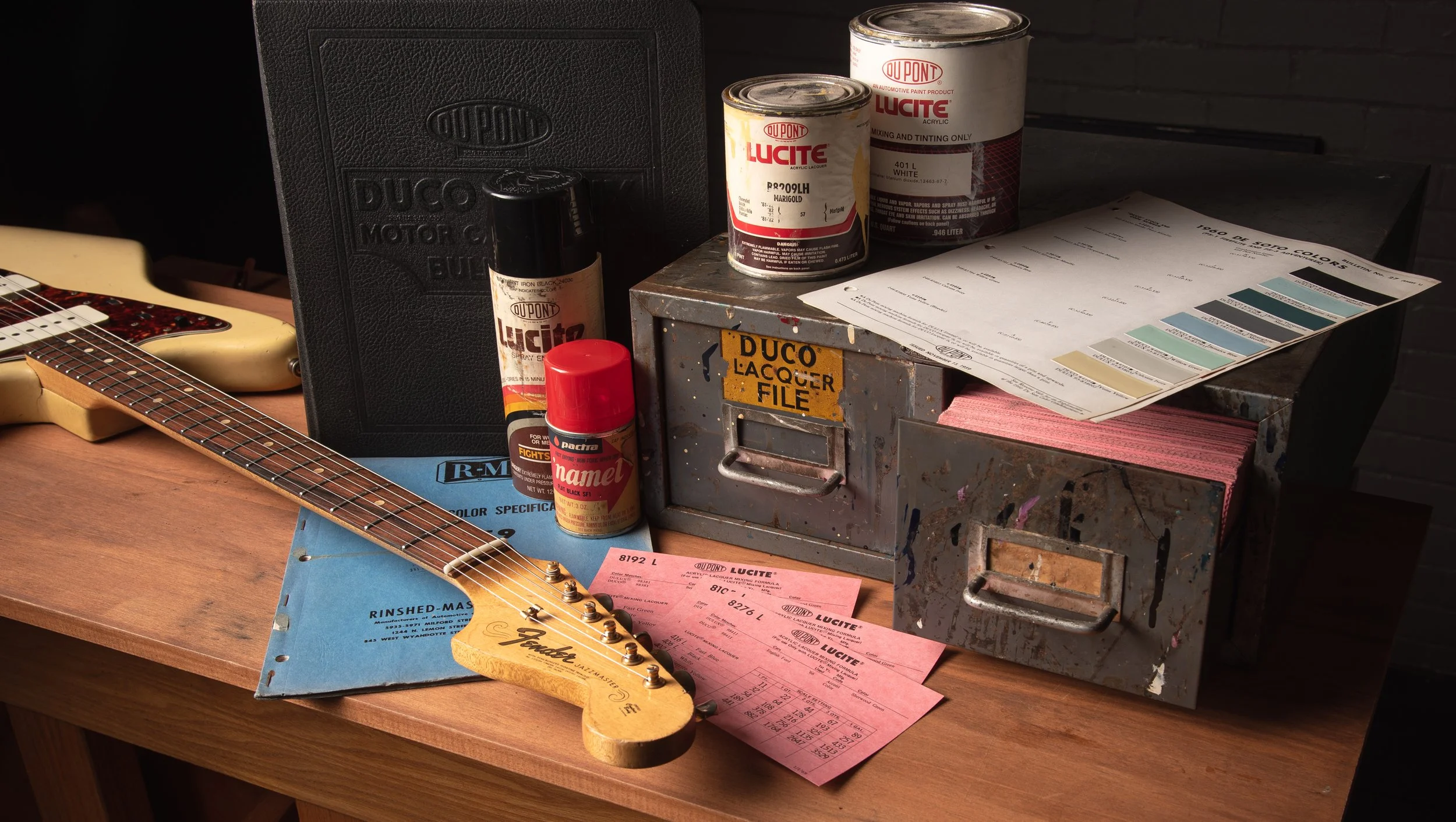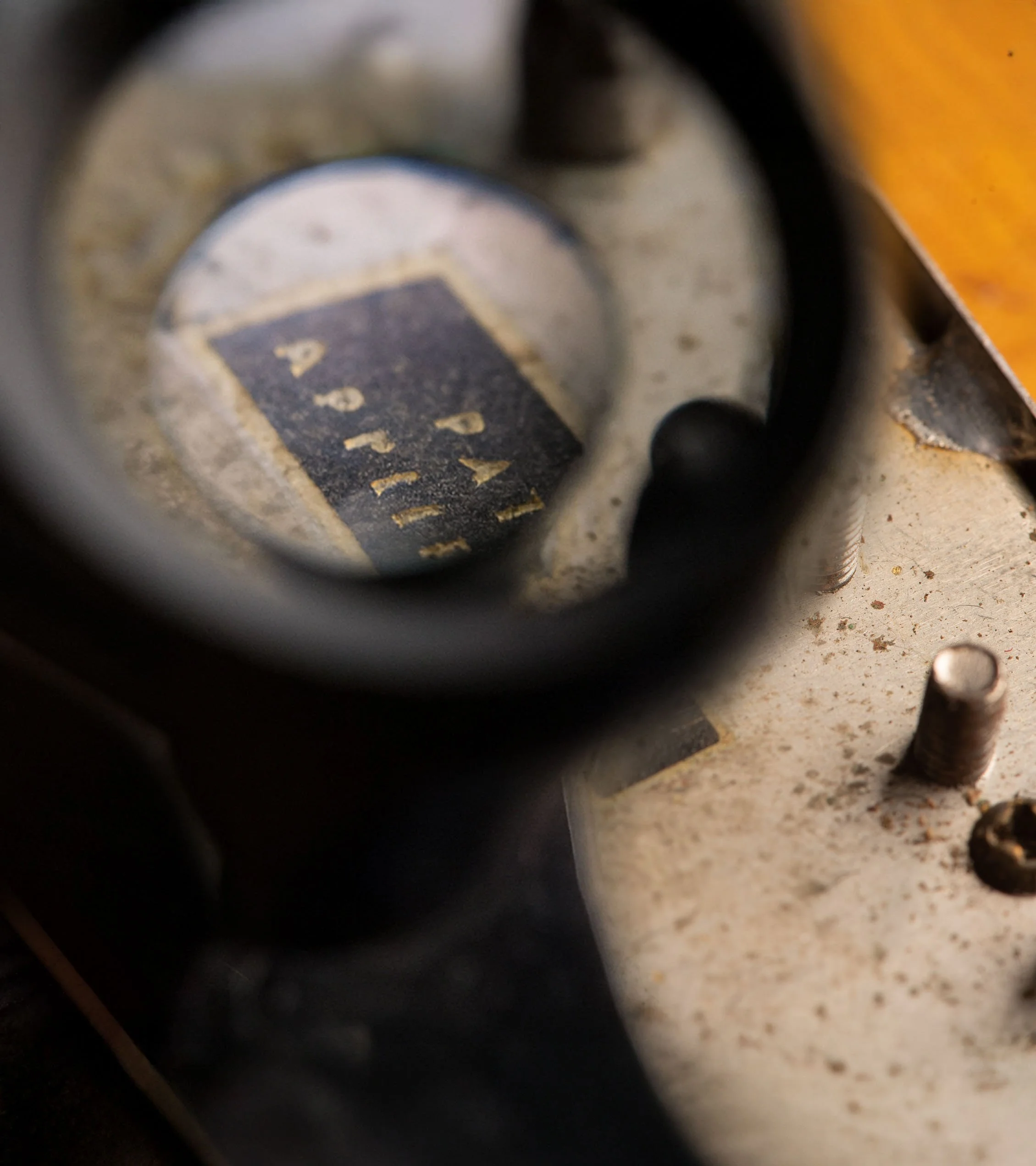Modern Science for Vintage Instruments
At Vintage Verified, our mission is simple: to provide clear, scientific analysis of vintage instruments. Using world-leading, non-destructive material science technologies in partnership with top cultural heritage scientists, we test instruments, analyze their materials, and produce reports that deliver objective results.
Our Nashville-based laboratory is outfitted with the most advanced spectroscopy and analytical tools available — the same technologies trusted by top museums and art authenticators worldwide. This allows us to study vintage guitars with the same level of rigor applied to works of fine art and cultural heritage.
With the support of prominent collectors and industry leaders, we have quietly analyzed many of the most significant private guitar collections. In the process, we have built the single largest database of finishes, plastics, and hardware ever assembled — hundreds of thousands of data points across manufacturers and eras that help provide the scientific context to evaluate each instrument with unmatched accuracy.
As a completely independent, third-party organization, we are unaffiliated with dealers, brands, or auction houses. Our only responsibility is to the integrity of the analysis itself — ensuring that every report is unbiased, transparent, and rooted in data rather than opinion.
At Vintage Verified, we maintain a respectful and collaborative relationship with dealers and the wider vintage community. The scientific tools we employ represent a major step forward for the industry—offering insights that were once out of reach and reshaping how instruments are understood, past and present. Our work is designed to strengthen trust through transparency and scientific clarity, not to challenge past descriptions or transactions. To learn more about how we engage with dealers and the industry, please see our Dealer Policy

FAQs
-
No, Vintage Verified’s analysis will not damage your instrument. Vintage Verified employs non-destructive, “No Touch” analytic technologies that will not damage the instrument surface or any of its components. In limited cases, Vintage Verified will request authorization to remove a small piece of finish, measuring less than half the size of a grain of rice, for further analysis.
-
Vintage Verified is confident in its data because it is built on both scale and understanding.
First, the size of our dataset matters. We have analyzed thousands of instruments, components, and materials, spanning more than a century of manufacturing history. That scale gives us a rare ability to see the full picture of how things were made and to compare any single piece against a massive body of verified examples. For example, just from Gibson finishes produced between 1958 and 1960, we have collected more than 900 scans across multiple analytical instruments, yielding nearly 400,000 individual data points. The dataset continues to grow as we analyze more instruments.
Second, because of that depth, we can identify both outliers and norms. A finish, a piece of hardware, or a plastic part is never judged in isolation. It is measured against established patterns drawn from decades of production.
Third, it is not just about raw data. Through hands-on analysis and with the guidance of our Advisors, we have developed a fundamental understanding of the materials themselves: how nitrocellulose lacquers were formulated and changed, how plastics and alloys evolved, and why those shifts happened, whether due to regulation, cost, or technology.
Finally, it is the combination of our dataset and that deeper understanding that makes the work valuable. Together they allow us to trace both the subtle shifts, such as a tweak in a lacquer recipe or a minor change in plating, and the larger turning points, such as when entire industries adopted new materials.
That is why we are confident in our data. It is not just a collection of measurements. It is a living record of how materials and instruments evolved, grounded in both science and history.
-
We operate on pre-scheduled appointment slots and ask that the guitar be dropped off at the shop on or before the morning of the scheduled appointment. In most cases, the instrument will be ready for pickup by the end of the same day. Determining the exact length of time required for analysis can be difficult, as it depends on several factors such as the instrument’s finish type, overall condition, and any prior modifications or repairs. That said, a typical analysis of an average instrument can usually be completed within 2–3 hours.
-
Yes. Vintage Verified does not share any information about any instrument or its owner to anyone. Any and all information surrounding an instrument’s authentication status or provenance is handled with the utmost confidence.
-
No, Vintage Verified does not offer appraisals as part of its services. In an effort to remain as objective and unbiased as possible, Vintage Verified does not speculate on an instrument’s current market value. However, we are more than willing to refer you to a quality appraiser.
-
No, Vintage Verified does not include/speculate on provenance in its reports. Provenance, although critically important to understanding an instrument’s market value, is not critical in the evaluation of an instrument through the lens of authentication.
-
No, Vintage Verified’s work is not exclusive to dealers. Although we work with many dealers, we are open to the public by appointment.
Contact us
Interested in working together? Fill out some info and we will be in touch shortly. We can’t wait to hear from you!

